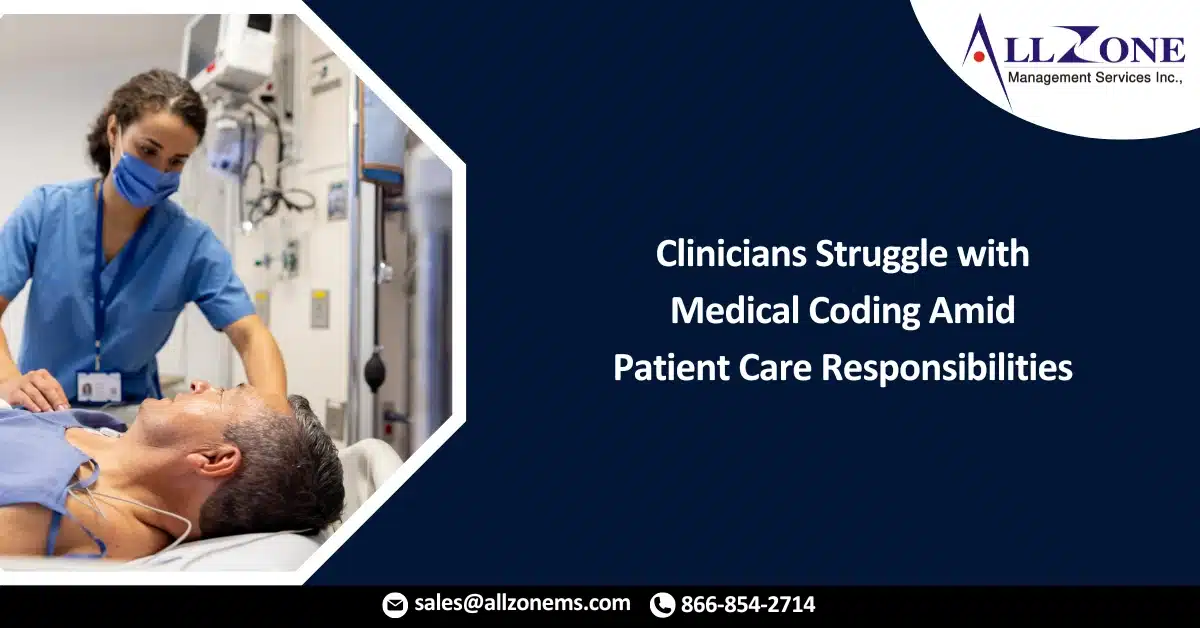Presently, healthcare professionals face growing administrative demands alongside their patient-focused duties. A pivotal challenge among these is medical coding, essential for various reasons. It ensures adherence to billing standards impacting reimbursements, meets quality metrics established by healthcare entities and insurers, and guarantees precision in diagnoses recorded for billing purposes. Yet, the task of accurate coding can feel overwhelming, particularly since the shift to ICD-10 in 2015 significantly expanded the array of available codes.
A significant hurdle for clinicians is justifying their coding choices, especially in time-sensitive scenarios like coding for mental health issues such as depression or conducting alcohol screenings. Many clinicians recognize the significance of accurate coding, not solely for billing but also for analyzing behavior such as prescribing practices, clinical trends, and assessing quality metrics. For example, coding analysis might flag instances of potentially inappropriate antibiotic prescriptions, prompting clinicians to reevaluate their charting decisions. Thorough documentation serves as the means through which clinicians communicate among themselves and with patients, offering crucial insights into our clinical decision-making processes. Coding isn’t just another task; it’s an unavoidable aspect clinicians must adeptly handle, despite its challenges.
The Query Emerges: is it possible to comprehensively capture every detail of patient care and decision-making accurately within the Electronic Health Record amidst a bustling clinic schedule? The truth is excelling in medical coding and being a proficient physician entail different skill sets and expertise. Although problem-solving abilities and attention to detail have some common ground, mastery in coding doesn’t automatically translate to clinical excellence, and vice versa.
Modern Electronic Health Record (EHR) systems have incorporated tools like wizards, simplifying accurate coding when supported by thorough chart documentation and coding references. The recent adoption of time-based billing has indeed reduced documentation demands, yet it still obliges clinicians to prioritize time tracking over patient care. The aspiration is that forthcoming advancements in artificial intelligence will further streamline these processes, allowing clinicians to devote less attention to intricate coding details. Ultimately, adept coding doesn’t necessitate the empathy or bedside manner crucial to being an excellent doctor. While healthcare institutions may benefit from employing coders to capture every detail, ensuring alignment between documentation and coding demands effort, even when a coding specialist is present.
Medical education prioritizes a doctor’s foundational knowledge in medical sciences, interpersonal skills, empathy, critical thinking, and the ability to navigate high-pressure situations. Medical schools primarily emphasize these crucial qualities rather than delving into the intricacies of medical coding. Typically, training in coding occurs on the job or through feedback from insurance denials, reinforcing proper coding practices. This process can lead to missed reimbursements and necessitate additional efforts to improve coding skills outside regular clinic hours. However, it’s crucial for doctors to acknowledge the time and dedication required to develop coding expertise and carefully consider how coding aligns with their overall professional aspirations and duties.
While coding skills can prove advantageous in areas like health care software development, electronic health record management, or medical research data analysis, proficiency in coding alone doesn’t suffice for being an exceptional doctor. Yet, it seems that our evaluation often revolves around coding proficiency. Presently, clinicians are evaluated and benchmarked against peers by insurance companies, healthcare institutions, and published metrics, frequently assessing their coding prowess rather than the substance of the visit or, in many cases, their clinical abilities.
Becoming a doctor entails completing rigorous medical education, training, and practical experience, demanding an extensive grasp of human anatomy, physiology, pharmacology, pathology, and various other medical domains. Today, within the electronic healthcare system, proficiency in coding has become an additional requisite skill.
In summary, being a competent coder and a skilled doctor necessitates distinct training and expertise. While possessing diverse skills can be advantageous, excellence in one area doesn’t inherently translate to excellence in the other. However, in today’s healthcare landscape, clinicians are assessed and remunerated based on both skill sets, underscoring the importance of striking a balance between clinical cares and coding proficiency. Whether embraced or not, proper coding within Electronic Health Records has become an added responsibility for clinicians, necessitating them to incorporate coding into their multifaceted job roles.

